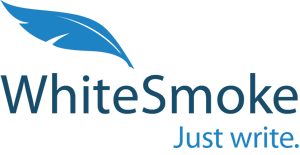The Combination of Peer and Self-directed Feedback on Writing Ability of EFL High Proficient Students
Abstract
Abstract: This study examined whether high proficient students who are trained with the treatment of the combination of peer and self-directed feedback (PSF) have better writing ability than the high proficient students who are not trained with this treatment. Employing a quasi-experimental research, this study involved two groups of 28 students given a writing test. The results pointed out that the students who were trained with the combination of PSF had better writing ability than the students who were not trained with the combination of PSF. Teachers are suggested to provide the combination of PSF to high proficient students. Further investigation involving moderate and low proficiency levels is suggested.
Key Words: peer and self-directed feeedback, writing ability, English proficiency
Abstrak: Penelitian ini menguji apakah mahasiswa yang dilatih dengan perlakuan kombinasi umpan balik dari teman sebaya dan diri sendiri (PSF) memiliki kemampuan menulis yang lebih baik daripada mahasiswa yang tidak dilatih dengan perlakuan kombinasi umpan balik dari teman sebaya dan diri sendiri. Dengan desain kuasi eksperimental, penelitian ini melibatkan dua kelompok dengan 28 mahasiswa yang diberi tes menulis. Hasil menunjukkan bahwa mahasiswa yang dilatih dengan kombinasi PSF memiliki kemampuan yang lebih baik daripada mahasiswa yang tidak dilatih dengan kombinasi PSF. Guru disarankan memberikan perlakuan ini pada siswa yang mahir berbahasa Inggris. Penelitian lanjutan melibatkan kemahiran bahasa Inggris sedang dan tinggi pun disarankan.
Kata kunci: umpan balik teman sebaya dan diri sendiri, kemampuan menulis, mahir berbahasa Inggris
Keywords
Full Text:
PDFReferences
Barkley, E. F., Cross, K. P., & Major, C. H. 2005. Collaborative Learning Techniques. San Francisco, CA: John Wiley & Sons.
Brown, H.D. 2004. Language Assessment: Principles and Classroom Practices. White Plains, NY: Pearson Education.
Cahyono, B. Y., & Amrina, R. (2016). Peer Feedback, Self-correction, and Writing Proficiency of Indonesian EFL Students. Arab World English Journal, 7(1), 178-193. doi:https://dx.doi.org/10.24093/awej/vol7no1.12
Cahyono, B. Y. & Widiati, U. 2011. The Teaching of English as a Foreign Language in Indonesia. Malang: State University of Malang.
Eksi, G. Y. (2010). Peer Review versus Teacher Feedback in Process Writing: How Effective?, IJAES Journal (Online), 13 (1): 33 – 48.
Ellis, R. A. (2009). Typology of Written Corrective Feedback Types. ELT Journal, 63 (2): 97-107.
Farrah, M. (2012). The Impact of Peer Feedback on Improving the Writing Skills among Hebron University Students, (Online), 26 (1): 2: 32, An – Najah Univ. J. Res. (Humanities), Retrieved January, 2015 from https://journals.najah.edu.
Ghani, M., & Asgher, T. (2012). Effects of Teacher and Peer Feedback on Students’ Writing at Secondary Level. Journal of Educational Research,15(2), 84-97. Retrieved August 14, 2015, from https://www.questia.com.
Guenette, D. (2007). Is Feedback Pedagogically Correct? Research Design Issues in Studies of Feedback on Writing. Journal of Second Language Writing, (Online), 16 (-): 40 – 53, Retrieved August 14, 2015 from http://englishunisma.com .
Hajimohammadi, R. & Mukundan, J. (2011). Impact of Self-Correction on Extrovert and Introvert Students in EFL Writing Progress. World Applied Sciences Journal, (Online), 4 (2): 161-168.
Harran, M. (2011). What Higher Education Students Do with Teacher Feedback: Feedback Practice Implications. Southern African Linguistics and Applied Language Studies, (Online), 29 (4): 419 – 434.
Harmer, J. (2004). How to Teach Writing. Edinburgh Gate, Essex: Pearson Education.
Hyland, K. & Hyland, F. (2006). Feedback on Second Language Students’ Writing. Language Teaching, (Online), 39 (2): 83 – 101, Retrieved from http://hdl.handle.net/10722/57356.
Hyland, Ken. (2003). Second Language Writing. Cambridge: Cambridge University Press.
Krashen, S. D. (1981). Second Language Acquisition and Second Language Learning. Southern California: Pegamon Press.
Latief, M. A. (1991). Scoring the Quality of Classroom Essay. TEFLIN Journal: An EFL Journal in Indonesia, 4 (1): 94 – 112.
Latief, M.A. (2000). Validitas Hasil Pengukuran. Jurnal Bahasa, Sastra, Seni, dan Pengajarannya, 28 (1): 95 – 104.
Latief, M.A. (2001). Reliability of Language Skills Assessment Results. Jurnal Ilmu Pendidikan, 8 (3): 214 – 224.
Liao, H. & Lo, Y. (2012). Peer Review Comments Provided by High- and Low- Proficiency L2 Learners: A Comparative Study, International Journal of English Linguistics, (Online), 2 (5): 45 – 54.
Long, M. H. & Doughty, C. J. (2002). The Handbook of Language Teaching. Hoboken, NJ: Wiley and Sons.
Lewis, M. (2002). Giving Feedback in Language Classes. In Lightbown, P.M. & Spada, N. 2013. How Languages are Learned. Oxford: Oxford University Press.
Lundstrom, K. & Baker, W. (2009). To Give is Better than to Receive: The Benefits of Peer Review to the
Reviewer’s Own Writing. Journal of Second Language Writing, (Online), 18 (-): 30 – 43.
Marzano, R. J. (2006). Classroom Assessment and Grading that Work. Alexandria, VA: ASCD.
Muth’im, A. (2013). The Effectiveness of Indirect Error Correction Feedback on the Quality of University Students’ Writing. Unpublished Dissertation. Malang: PPs UM.
Sotoudehnama, E. & Pilehvari, A. (2016). The Impact of Peer Review on EFL Learners’ Writing Proficiency: Global and Local Aspects, Porta Linguarum, (Online), 25 (1): 35 – 47, Retrieved April 16, 2016 from http://www.ugr.es.
Wakabayashi, R. (2013). The Effect of Peer Feedback Process on Reviewers’ Own Writing, Canadian Center of Science and Education, (Online), 6 (9): 177-192.
Watanabe, Y. & Swain, M. (2007). Effects of Proficiency Differences and Patterns of Pair Interaction on Second Language Learning: Collaborative Dialogue between Adult ESL Learners, Language Teaching Research, (Online), 11 (2): 121– 142.
Weigle, S. C. (2002). Assessing Writing. Cambridge: Cambridge University Press.
Copyright (c) 2018 Jurnal Pendidikan Humaniora

This work is licensed under a Creative Commons Attribution-ShareAlike 4.0 International License.
Jurnal Pendidikan Humaniora Graduate School, Universitas Negeri Malang JPH is licensed under Creative Commons Attribution-ShareAlike 4.0 International License |




